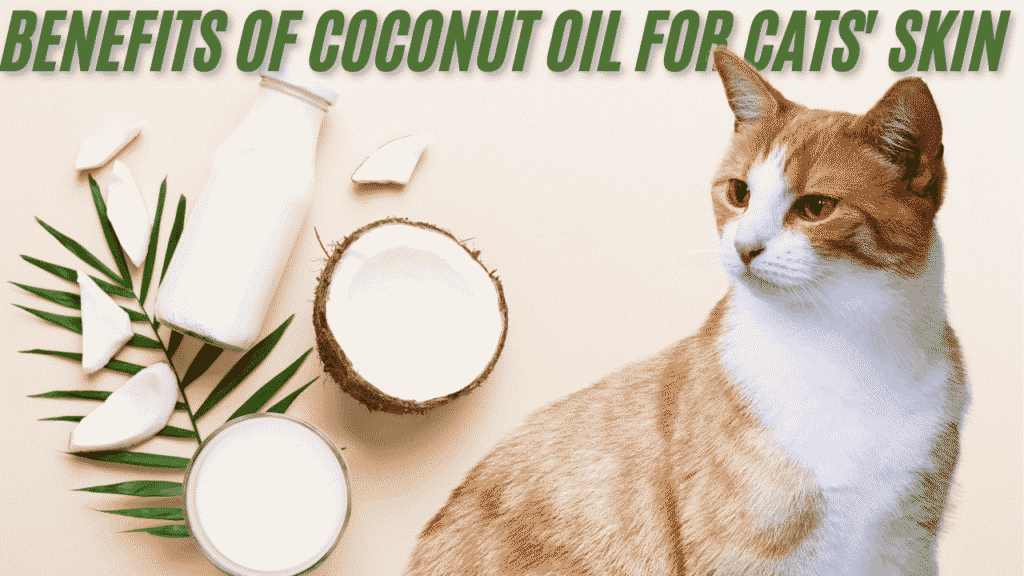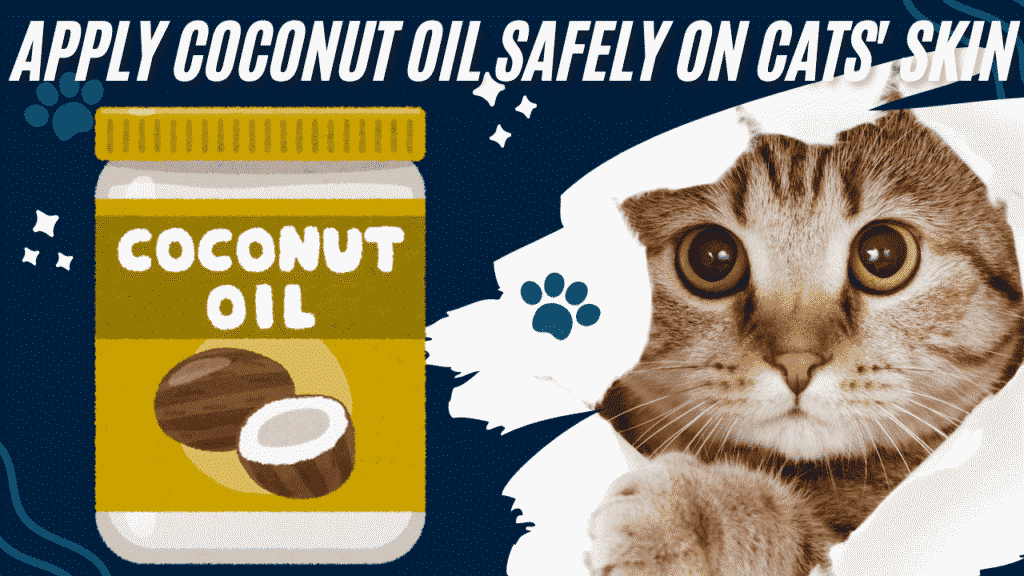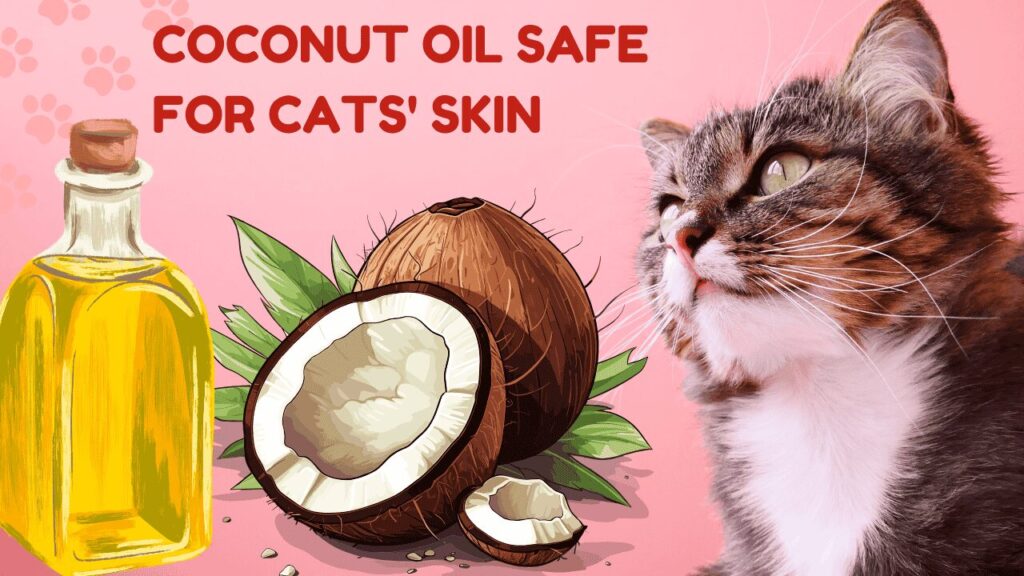Coconut oil is a popular natural remedy celebrated for its versatile applications in human health, beauty, and even pet care. But when it comes to our feline friends, many cat owners ask, “Is coconut oil safe for cats’ skin?”This comprehensive guide explores the advantages, possible drawbacks, and proper methods of using coconut oil for cats, emphasizing its effects on their skin.
Understanding Coconut Oil and Its Composition
Coconut oil is extracted from the meat of coconuts and is rich in medium-chain fatty acids (MCFAs), particularly lauric acid, which has antimicrobial, anti-inflammatory, and moisturizing properties. These qualities make it appealing for treating various skin conditions in cats.
Benefits of Coconut Oil for Cats’ Skin
1. Natural Moisturizer
Coconut oil acts as a deep moisturizer, helping to combat dryness and flakiness in cats’ skin. Its hydrating properties make it especially useful during colder months when indoor heating can strip moisture from the air.
2. Soothing Irritated Skin
For cats suffering from skin irritation due to allergies, insect bites, or environmental factors, coconut oil provides a cooling and soothing effect.Its anti-inflammatory qualities may assist in alleviating redness and minimizing swelling.
3. Antifungal and Antibacterial Protection
Coconut oil’s natural antimicrobial properties can protect against minor bacterial and fungal infections. This makes it an excellent option for addressing issues such as ringworm or minor cuts and abrasions.
4. Enhancing Coat Health
Consistent use of coconut oil can promote a glossier and more vibrant coat. It strengthens hair follicles and may reduce shedding, leaving your cat’s fur soft and glossy.
5. Promoting Healing
The wound-healing properties of coconut oil help in faster recovery of scratches, sores, or small injuries. Its barrier-forming ability keeps wounds clean and moist, aiding the healing process.

Potential Risks of Using Coconut Oil on Cats
While coconut oil offers many benefits, it’s crucial to consider potential risks:
1. Allergic Reactions
Some cats may have an allergy to coconut oil, resulting in skin irritation or worsening of existing conditions. Conduct a patch test first before using it extensively.
2. Overapplication Risks
Excessive use of coconut oil can result in an oily coat, potentially trapping dirt and debris. Excessive use may also clog pores, potentially causing skin problems instead of solving them.
3. Ingestion Concerns
Cats often groom themselves, which means they may ingest coconut oil applied to their skin. While coconut oil is generally safe in small amounts, excessive ingestion could lead to diarrhea or digestive upset.
When Should You Use Coconut Oil on Your Cat’s Skin?
1. For Dry or Cracked Skin
Coconut oil is most effective for treating dry patches, cracked skin, or mild skin conditions caused by weather or lack of humidity.
2. As a Preventive Measure
You can use coconut oil as a preventive measure to keep your cat’s skin healthy, especially if they are prone to dryness or itching.
3. For Treating Minor Wounds
Applying a small amount of coconut oil to minor cuts or scrapes can protect the area while promoting faster healing.
How to Apply Coconut Oil Safely on Cats’ Skin
1. Choose the Right Coconut Oil
Always use virgin, unrefined coconut oil for your cat. Refined oils may contain additives or undergo processes that strip away beneficial properties.
2. Perform a Patch Test
Test coconut oil on a small area of skin before broader application, and watch for any signs of redness, irritation, or itching.
3. Use a Small Amount
Start with a tiny amount, warming it between your fingers before massaging it gently into your cat’s skin. Avoid overapplication.
4. Monitor Your Cat’s Behavior
Since cats groom themselves frequently, watch to ensure they do not ingest too much oil. If you notice loose stools or vomiting, discontinue use and consult your veterinarian.
5. Combine with a Balanced Diet
Topical treatments are most effective when combined with a healthy, nutrient-rich diet that supports overall skin and coat health.

When to Consult a Veterinarian
While coconut oil is generally safe for cats, there are situations where professional advice is essential:
- Persistent Skin Issues: If your cat’s skin problems do not improve with coconut oil or worsen, consult a veterinarian.
- Underlying Allergies: Skin conditions caused by food allergies, flea infestations, or other medical issues require a tailored treatment plan.
- Severe Infections: For deep wounds or severe infections, coconut oil may not suffice as a treatment.
Alternatives to Coconut Oil for Cat Skin Care
If coconut oil does not work for your cat, consider these alternatives:
- Olive Oil: Known for its moisturizing properties.
- Aloe Vera Gel: Offers a soothing effect for irritated skin.
- Veterinary-Approved Skin Balms: Specifically formulated for cats.
Final Thoughts
Coconut oil can be a beneficial addition to your cat’s skincare routine, offering moisture, protection, and healing properties. However, it’s essential to use it cautiously and monitor your cat for any adverse reactions. As with any home remedy, consulting a veterinarian before introducing coconut oil into your cat’s care regimen ensures the best outcome for your furry friend.
# : if you want to more information of this topic to click here see more
# : READ ANOTHER POSTS
1 : Can Cats Eat Donuts? A Guide to Feline Nutrition and Health Risks
2 : Can Cats Eat Peanuts? A Comprehensive Guide
3 : Can Cats Eat Honey? A Comprehensive Guide
4 : How to Tell If a Stray Cat is Pregnant: Comprehensive Guide for Caregivers


